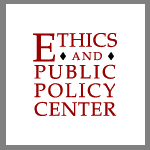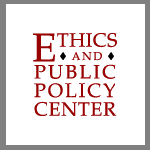
Deprecated: trim(): Passing null to parameter #1 ($string) of type string is deprecated in /home/aoiusa/public_html/wp-content/plugins/sexybookmarks/public.php on line 388
Deprecated: trim(): Passing null to parameter #1 ($string) of type string is deprecated in /home/aoiusa/public_html/wp-content/plugins/sexybookmarks/public.php on line 394
Deprecated: trim(): Passing null to parameter #1 ($string) of type string is deprecated in /home/aoiusa/public_html/wp-content/plugins/sexybookmarks/public.php on line 400
 Here’s the Progressive matrix: Foster dependency under the rubric of compassion, then point with alarm to the results of the policies in order to make the dependencies permanent. In the meantime, treat the dependents as a market and build industries around the pathologies that developed that are lucrative to Progressive industry — abortion, lobbying, and so forth. Resist all efforts to improve education and moral renewal in the impoverished areas, and the result is constituency that keeps the profits and political influence in place from one generation to the next. From the essay:
Here’s the Progressive matrix: Foster dependency under the rubric of compassion, then point with alarm to the results of the policies in order to make the dependencies permanent. In the meantime, treat the dependents as a market and build industries around the pathologies that developed that are lucrative to Progressive industry — abortion, lobbying, and so forth. Resist all efforts to improve education and moral renewal in the impoverished areas, and the result is constituency that keeps the profits and political influence in place from one generation to the next. From the essay:
My former White House colleague Ron Haskins points out that “Census data show that if all Americans finished high school, worked full time at whatever job they then qualified for with their education, and married at the same rate as Americans had married in 1970, the poverty rate would be cut by around 70 percent.” The best way to keep open the pathway to the American Dream, then, is through a “success sequence”; graduate from high school, get a job, get married, and then have babies.

Source: Ethics and Public Policy Center
In thinking through the best way to help truly disadvantaged Americans regain access to the American Dream, it’s helpful to disaggregate the issue and identify its shifting nature.
There is, as there has always been, an economic component to poverty and opportunity in America, including growth, access to capital, and mobility. And those things remain crucial. But I want to submit for consideration a proposition which has significant empirical backing: the main driver of poverty in America today has to do with culture, mores, and lifestyle choices, not with economics.
My former White House colleague Ron Haskins points out that “Census data show that if all Americans finished high school, worked full time at whatever job they then qualified for with their education, and married at the same rate as Americans had married in 1970, the poverty rate would be cut by around 70 percent.” The best way to keep open the pathway to the American Dream, then, is through a “success sequence”; graduate from high school, get a job, get married, and then have babies.
So what can we do to encourage more people to embrace this “success sequence”? By providing children with stable, orderly environments in which to grow up and to strengthen the institutions that shape the character and habits of the young.
In practical terms, what am I talking about? First and foremost, it means we need more stable, intact families. The theologian Michael Novak once called the family the original and best department of health, education, and welfare. If families fail, other adults can help fill the breach. But it is very nearly impossible for other people and institutions to fully pick up the pieces.
Children who are raised in broken families are far more likely to drop out of high school, use drugs, commit violent crimes, have children outside of marriage, develop mental health problems, become homeless, drop out of the labor force, go on welfare, and experience poverty. Indeed, the poverty rate for single-parent families is almost six-times the rate for married-couple families. “The best anti-poverty program for children is a stable, intact family,” according to former Clinton administration officials William Galston and Elaine Kamarck.
Unfortunately the news on the family front is fairly discouraging. More than 40 percent of all births today are out-of-wedlock. America has the highest divorce rate in the Western world. By the age of eighteen, over half of American children have lived apart from their fathers for a significant portion of their childhood. “The scale of marital breakdown in the West since 1960 has no historical precedent and seems unique,” according to the late historian Lawrence Stone.
How do we repair the damage? Public policies can help strengthen marriages at the margins. Laws can create incentives and disincentives for certain kinds of behavior (welfare reform and anti-drug policies are excellent examples). And society itself—through popular culture and the words of its most influential citizens—needs to send reinforcing signals when it comes to families. Families should not feel as though they are fortresses besieged by the outside world.
Ultimately keeping families strong and whole depends on the effort of individuals, on parents nurturing, disciplining, and instructing children, and on fidelity, commitment, and a measure of selflessness on the part of adults. If those things are missing, there is no easy or obvious way to recreate them.
We should eschew romanticism and a Hallmark Mentality. Marriage and parenting, while deeply fulfilling, can also be challenging. They create stress points along the way. The way to overcome them is through greater patience, understanding, and self-knowledge. This in turn will have enormous social and economic consequences. After all, it is parents and a community of committed adults (including teachers, coaches, ministers and youth leaders, neighbors, and friends) who instill in children discipline, self-control, persistence, honesty, fidelity, respect for authority and for others, and the ability to delay gratification. When children learn these things, success and human achievement usually follow. When they do not, failure and even human misery often come to pass.
We know enough about neuroscience to know that character is a product of nature as well as nurture, hardwiring as well as hard work. But we also know enough about life to know that parents exert a huge influence on the moral beliefs and actions of children.
“The central conservative truth is that culture, not politics, determines the success of a society,” the late, great Daniel Patrick Moynihan said. “The central liberal truth is that politics can change a culture and save it from itself.”
We need both culture and politics engaged in this effort, which is as important as any on earth.
Peter Wehner is a senior fellow at the Ethics and Public Policy Center.


